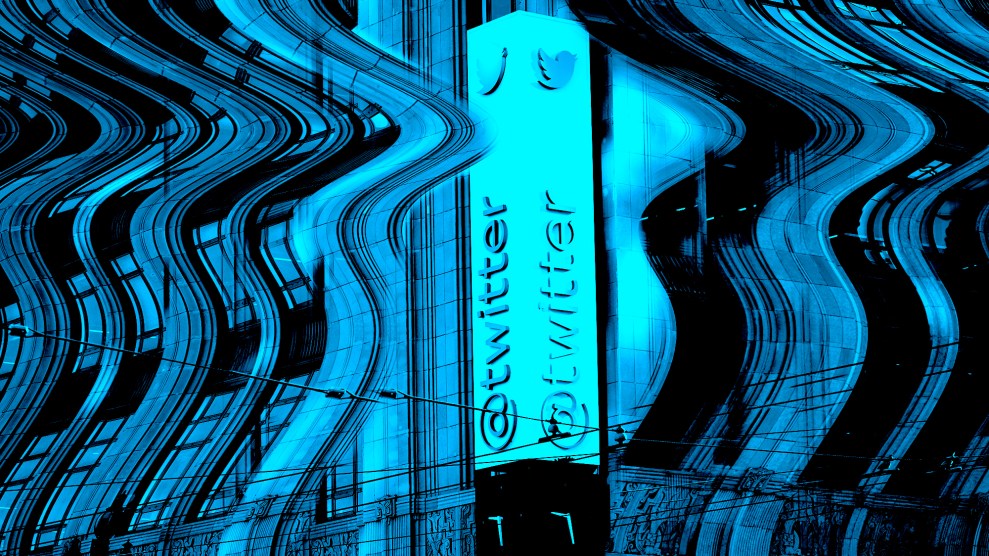
Mother Jones; Michael Ho Wai Lee/SOPA/Zuma
There was a story you probably missed last week about Nikki Haley. Or at least, I hope you missed it. The Republican presidential hopeful recently celebrated her daughter’s wedding, the New York Post reported, but there was a catch—some people on the internet had rude things to say about the photo she posted:
Most comments offered congratulations to Haley and her growing family.
Still, other posters were sharply critical of the off-white dress worn by the former South Carolina governor and US ambassador to the UN in the Trump administration.
The sources for this backlash are as follows: “one Twitter user,” “another user,” “another,” “another baffled user,” and “still another.”
This might sound like thin sourcing, but if you’re familiar with the Post, you’ll know that “one Twitter user” is actually one the paper’s go-to sources. The outlet turns to One Twitter User for insight the way a certain kind of political journalist would call up Larry Sabato. One Twitter User was there in a September 2022 story about budget airline Ryanair’s customer service. (“I really miss when companies behaved like adults even if the flights are cheap.”) And in March, in a story about a Canadian TikToker who posed next to the body of a man who had been stabbed. (“I fear for our disgusting future.”) And in April, after a woman gave birth on a San Francisco sidewalk. (“This makes me incredibly sad.”) And again, after the country music star Riley Green replaced the words “Bud Light” in one of his songs with “Coors Light.” (“Thanks for knowing your audience.”)
One Twitter User is always being quoted saying stuff like this in the pages of the Post—and of plenty of other outlets too. They are inspired by the heroism of strangers, offended by the existence of women, and angry at Bill de Blasio. They are happy, sad, inspired, afraid. It is all fake as can be. A story like the wedding-dress saga is not invented in the literal sense—Haley posted a photo, and Twitter users did comment on it. But it is invented in the broader sense—because virtually all social media posts from a public figure will produce some measure of support or disdain.
The expert analysis of One Twitter User is often merely a setup to a follow-up story, in which the subject of criticism gets the final word. And that’s exactly what happened here. After a Newsweek reporter sent a request for comment to Haley about “slight backlash” to the dress from “some” (Some is another reliable source of backlash), one Twitter user—okay, Nikki Haley—wrote that media coverage like this was “why people don’t trust the media.” The result was another piece in the Post headlined: “Nikki Haley Claps Back at Critics of ‘Gold’ Dress at Wedding: ‘Grow Up.’” The circle was complete.
Before Elon Musk took over Twitter, drove public radio off the platform, and tanked the site’s value and functionality, Twitter altered and broke newsgathering and analysis in all sorts of ways. Some journalists wrote too much for their own echo-chambers. Others became obsessed with the idea that everyone else was in an echo-chamber. For a while, the most powerful person in the world was posting there at all hours of the day, and we all had to pay at least glancing attention to him in case he announced a crime. Personally, I ended up writing a lot of tweets that probably should have been articles. But of all the kinds of stories that Twitter helped produce, the genre of stories I’ll miss the least when it’s gone is stuff like this—a firehose of content about how someone you’ve never heard of was very rude to someone you maybe have. It is the rough equivalent of picking through a particular garbage bin and reporting back on how bad it smells.
Come to think of it, though, that would be a fun New York Post series.








